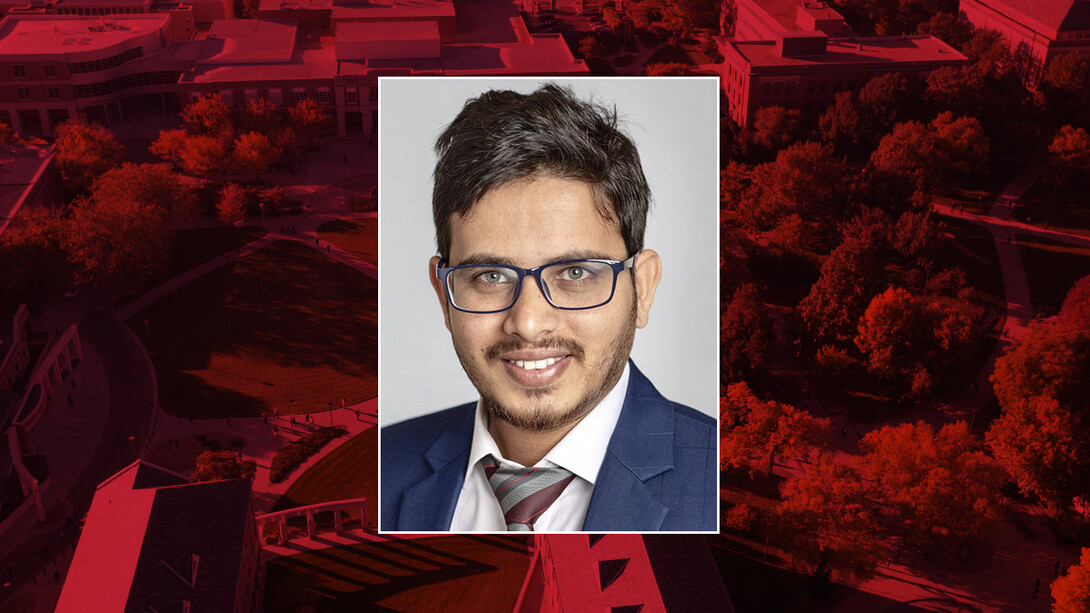
Plastic is everywhere. Its many advantages — it’s cheap, extremely versatile, strong and lightweight — have led to its widespread adoption in many of the products we use every day.
More than 400 million tons of plastic are produced worldwide every year, according to the Organisation for Economic Co-operation and Development. A lot of that plastic gets thrown away. As plastic deteriorates, it breaks down into smaller and smaller pieces — eventually microplastics and even nanoplastic particles much too small to be seen by the naked eye. Those particles can be ingested in the food we eat, the water we drink, or the air we breathe. And what about the plastic products that directly come in contact with food? Is there any risk of ingestion of plastic particles? Is there any health risk?
That’s what an engineering doctoral student at the University of Nebraska–Lincoln is trying to find out. Kazi Albab Hussain’s research aims to quantify the release of microplastics and nanoplastics from plastic-based baby products, study the relationship between the properties of the plastic materials and the release of microplastics and nanoplastics, and assess the consumers’ exposure and health impact.
His research is supported by the Graduate Scholars program at the Buffett Early Childhood Institute at the University of Nebraska. Doctoral students within the University of Nebraska System can now apply for the next round of Graduate Scholars funding. Applications are due March 31. The one-year fellowship, worth up to $25,000, supports research that touches on the development, education and well-being of young children, prenatal to 8 years old. Learn more about the program and eligibility requirements.
Past scholars have used the funding to examine a wide range of topics related to early childhood, including health disparities, the early math skills of preschoolers, neuroscience research on primates, and the stress and anxiety felt by mothers of premature babies.
Hussain has long been interested in research relating to health and safety. He started doing research in his home country of Bangladesh on heavy metals uptake by plants and the occurrence of heavy metals in surface water. After getting his bachelor’s degree from the Soil, Water and Environment Department at the University of Dhaka, he came to the United States, where his research expanded to nanomaterials.
After earning a master’s degree in environmental engineering at Florida Atlantic University in 2019, he came to the University of Nebraska–Lincoln. He is a doctoral student in the Department of Civil and Environmental Engineering and joined Yusong Li’s research group. While conducting experiments looking at trace amounts of silver nanomaterials released from plastic food containers, Hussain found there are a lot of micro- and nano-sized plastic particles released, too. While micro- and nano-plastics have been an environmental concern, Li said, very little attention has been paid to the release of microplastics from food containers.
About the same time, Hussain became a father in 2021 and worried about using plastic feeding bottles for his son. He designed experiments to simulate how he prepared baby formula using the plastic feeding bottles and found a lot of micro- and nano-plastic particles were released, Li said. This led to further questions: How many such particles are being released, and under what conditions? What type of plastic materials have greater particle release, and how do user actions, such as heating or refrigerating, affect particle release? How many micro- and nano-plastic particles may be consumed by a baby, and how harmful is it?
Hussain’s findings shook him as he was also preparing infant formula for his son.
“I was thinking, ‘oh gosh, I’m feeding my baby not only the formula, but also microplastics.’ But we don’t have many options other than using plastics,” he said.
There are multiple sources of plastic ingestion, he said, so “we need to do much, much more (research) to get a comprehensive answer.” But so far, his research has shown that the most concerning source of micro- and nanoplastic ingestion comes from microwaving food.
Hussain said the Graduate Scholars fellowship is a great opportunity for international students like himself, who are often barred from other funding sources.
“I really appreciate this opportunity,” Hussain said. “Being an international student here in the United States, we don’t have much of an opportunity to apply for funding, so when I saw the Buffett Graduate Scholar program gives this opportunity to everyone who’s a student of the University of Nebraska System, I was really happy.”
“Getting my project funded boosted my confidence as a researcher, and I feel really good about it.”
Li said the fellowship greatly helped extend the scope of Hussain’s research project, which she said “will make a significant contribution to this incredibly important topic.”
Hussain is finalizing a manuscript that he plans to submit to the Environmental Science and Technology journal. After he has earned his doctoral degree, Hussain hopes to do more research relating to people’s health and safety.







